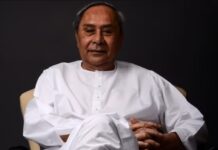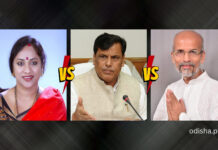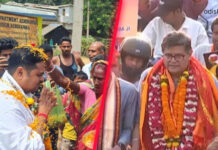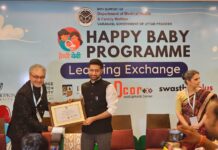Sailendra Pattnayak
It was October 1921, Jayaprakash Narayan decidedly understood his duty as that of following Gandhiji’s call for non-cooperation with all institutions aided by British Government and walked out of the Patna College the then elite education establishment of Bihar Province of British India. At that time even with in the leadership of Congress Party there had been quite a few who were not convinced of the call of Gandhiji and Jayaprakash was far from being a Gandhian was seriously engaged in his study of Marx.
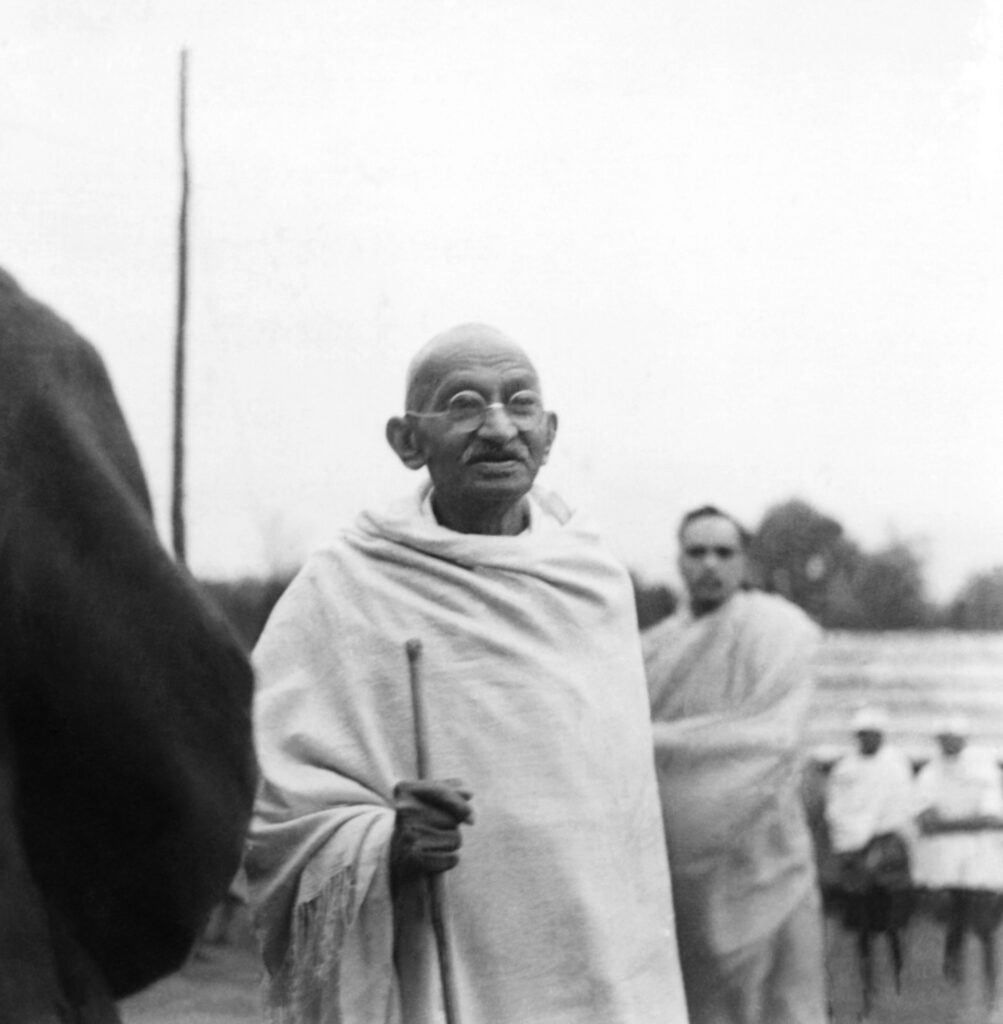
The very next year, in 1922, Jayaprakash went to United States of America for his higher studies. Born on 11th October 1902, he was yet to complete twenty. In U.S.A, paradoxically, he immersed himself in the study of Marxist-Leninist revolutionary strategies and state-craft. Being the youngest member with a greatly promising future of the Oriental Section of the Communist Party of America when he took his Master’s Degree in Sociology at the University of Ohio in 1929, he was immediately offered to join the University of Moscow for his further studies in Communist thought and revolutionary tactics for which the Soviet Union was prepared to bear all the expenses. But he preferred to return back to India and join the freedom struggle. During this long absence of seven years his wife had stayed in Sabaramati Ashram and Gandhiji treated her as his own daughter.
Moscow –Oriented Marxist Thinking—the First Set-Back
The second Civil Disobedience Campaign in 1932 marked the first set-back to JP’s Communist leanings. The Indian Communists on behest of Moscow not only stayed out of the national struggle but also denounced it as being in the interests of the bourgeoisie. Although greatly disillusioned and deeply hurt but still it was not possible to distance him-self from Marxism. Keeping intact the Marxist leanings Jayaprakash along with his illustrious friends Rammanohar Lohia, Narendra Deva and others formed the Congress Socialist Party in 1934 with the objective of exploring the possible ways and means for Marxist socialistic principles addressing the problems of India while remaining an integral part the National Congress.
From Marx to Gandhi: A Decisive Shift
Jayaprakash Narayan, now a popular young leader and lovingly called JP, being progressively disillusioned of Marxist thoughts, was deeply considering the Gandhian ways of life as the most practical alternative for Indians. In his essay ‘Outline Picture of Swaraj’ written in 1940 and published by Gandhi with his own positive comments in ‘Harijan’, JP passionately pleaded for a future India in which ‘’material satisfaction shall not be its sole objective’’ and where ‘’the villages shall be made self- governing units, self-sufficient in as large a measure as possible.’’
Quit India Movement and the Army of Liberation
JP’s prominent presence in organizing the Bihar rural population for the Quit India Movement brought him the wreath of the British Government and he was jailed for an indefinite period. But he escaped from the prison and from Nepal he organized the Army of Liberation which brought him the image of the ultimate hero among the youth of India. Howsoever he was caught in 1943 and languished in prison until the end of 1946, almost a year after the release of all the leaders imprisoned for the Quit India Movement.
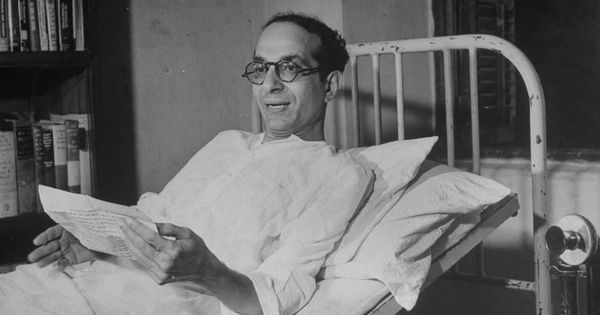
After the Freedom of India
In the first general election of India in 1952 the Socialist Party fared quite badly. But Prime Minister Nehru invited JP in 1953 to join his government along with some of his colleagues which JP promptly declined. Explaining his refusal he wrote and published a long essay titled ‘Minimum Programme for National Resurrection’ and in the covering letter to PM Nehru he wrote, ‘’We have all been deeply influenced by Gandhiji. I do not mind saying that I have been rediscovering him lately and reunderstanding him. I believe he was one of the most vital thinkers of the modern age. I am sure there is a great deal to learn from him today and also tomorrow. …… I feel sure that the Gandhians and Socialists, dropping their respective jargons, must work together. I have said this only to emphasize that I do not find in your policies any, or marked, awareness of these considerations.’’
Final Break with Marxism
The final break with Marxism came in 1952 with his ‘self-purification fast’ of twenty one days at Poona. In ‘Incentive to Goodness’ written shortly after the fast JP clarifies that ‘’a long process of questioning started and it became clear that materialism as a philosophical outlook could not provide any basis for ethical conduct and any incentive for goodness.’’ Enunciating it further he writes , ‘’Rejecting matter as the ultimate reality immediately elevates the individual to a moral plane, and urges him, without any reference to objective outside of himself, to endeavor to realize his own true nature and fulfill the purpose of his being.’’
From Socialism to Sarvodaya
‘’A Plea for Gandhism’’ an article published in 1953, JP comes to conclusion that Gandhism alone can offer a genuine solution to India’s problems as Communism has ended up in dictatorship and state capitalism, and Socialism in Western Europe has proved only to be a parliamentary or legalistic creed. ‘’Gandhism , to my mind , offers the third alternative – that of revolution by non-violent mass action.’’
Such deep and active contemplation led JP to Sarvodaya and Bhoodan Movement. At the annual Sarvodaya Conference held in 1954 at Bodha Gaya he announced that henceforth he would be devoting all his time and energy to Bhoodan and Sarvodya.
‘Lokniti’ vis-à-vis to ‘Rajaniti’
Such kind of decisive turn, to the majority and certainly to the managers of power politics seemed to be JP’s invitation to doom as a leader of people. JP was quite aware of it. His answer was also very specific. ‘’Though all my energies would be bent towards developing ‘lokniti’ I shall not shut my eyes to what happens in the sphere of ‘rajniti’.’’
With Vinoba Bhabe retiring from day to day involvement in 1969, JP took over the entire responsibility of Bhoodan Movement as well as Sarvodaya in India. Following Vinoba’s ‘positive role of Satyagraha’ he guided the Sarvodaya workers in helping the people to realize required progress with the best possible use of the Government policies and schemes.
But with the results JP was not at all happy. To gain first- hand experience he lived in and gave all his time to one single Block called Mushhari in the District of Muzafarpur in Bihar for one whole year. He found his assumptions to be correct. So , it took the Movement twenty five years to realize that the mind-set and the workings of the Government has been simly inherited from and thus continues to perpetuate the colonial forms of governance, only the personnel has changed. It became evident to JP that the ‘rajniti’ of Indira Gandhi and her private advisors was about to eliminate all the possibility of Gandhian ‘lokniti’ from the life of the Indians.
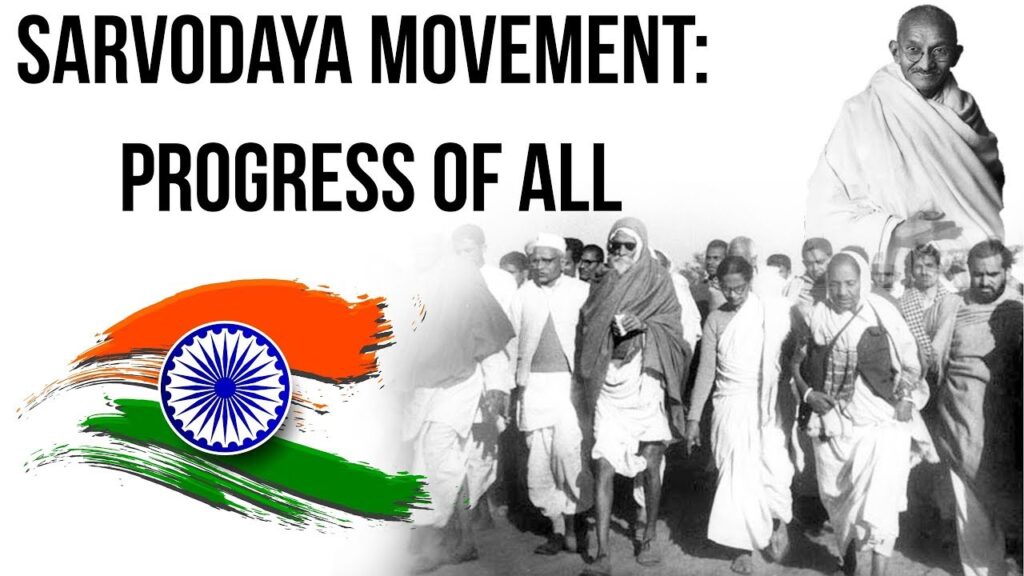
Total Revolution
From 1973 onwards Jayaprakash Narayan began to advocate a basic change in the whole system. In the Movement’s newly founded journal ‘Every-man’s Weekly’ in October 1973 with articles after articles he appealed to educated young citizens to come out and play an active role.
Speaking to students of Kanpur in February 1974 he said: ‘The country is fast heading towards a new revolution. There is a new 1942 movement in sight to change the course of history.’ When JP accepted the leadership of Bihar student’s movement, from which a struggle against the State Government emerged, the movement began to take its own momentum.
On 5th June 1974 JP led a large procession in Patna in demand of the dissolution of the Legislative Assembly. The same evening at a mass meeting in Gandhi Maidan he announced that a ‘Total Revolution’ happens to be the ultimate objective of the Movement. In the protest march on 25th June 1975 led by JP from Red Fort to Parliament nearly one million citizens participated. The same night JP and all prominent leaders of the Movement were arrested and State of Emergency was declared.
A New Beginning that Soon Reverted Back to the Same
Prime Minister Indira Gandhi announced in January 1977 that free elections to the Central Parliament would be held in March and all the arrested leaders were freed. Though JP was seriously ill yet his charismatic leadership united all the opposition parties to form the Janata Front. After a land-slide victory all the Janata Front MPs met on the campus of Gandhi Peace Foundation in New Delhi and JP nominated Morarji Desai for the office of Prime Minister.
But within a few months it became clear that the Janata Government was using the same strategy and following same policies as Jawaharlal Nehru in the Fifties that of in the name of Gandhi centralizing and institutionalizing all the policies, programs and schemes. Thus, had come a quick and sorry end to the Gandhian hope of self-reliant Indians constituting a self-reliant India.
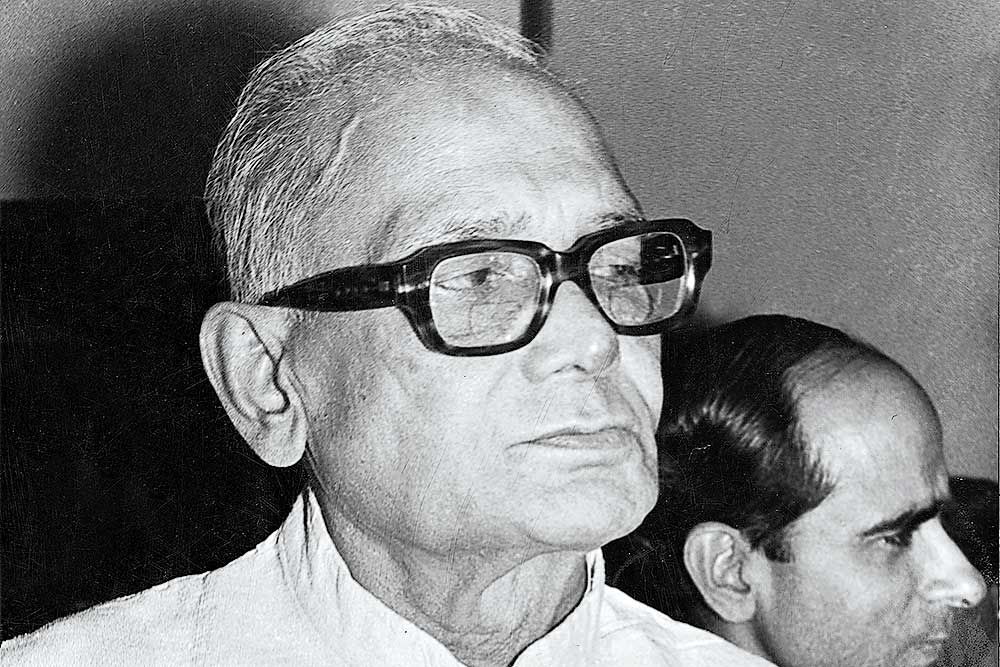
On 9th October 1977, a writer from West-Germany Mr. Detlef Kantowsky met Jayapraksh Narayan in Patna and referring to his ‘Prison Diary’ asked him when he would begin to challenge the new Janata Government and remind its leaders of their election promises. JP’s reply was: ‘’Whatever position I may have, I may also find myself ineffective and withdraw. I can only dissociate myself….’’
JP lived for exactly two years more and left his body on 8th October 1979. It may be assumed that during the last days of his life the prophetic words of Marx might have returned to hunt his mind that history in its journey invariably chooses the worst of the existing variants.
(Writer is a Poet, Spiritualist and Development Professional. Views are personal)

